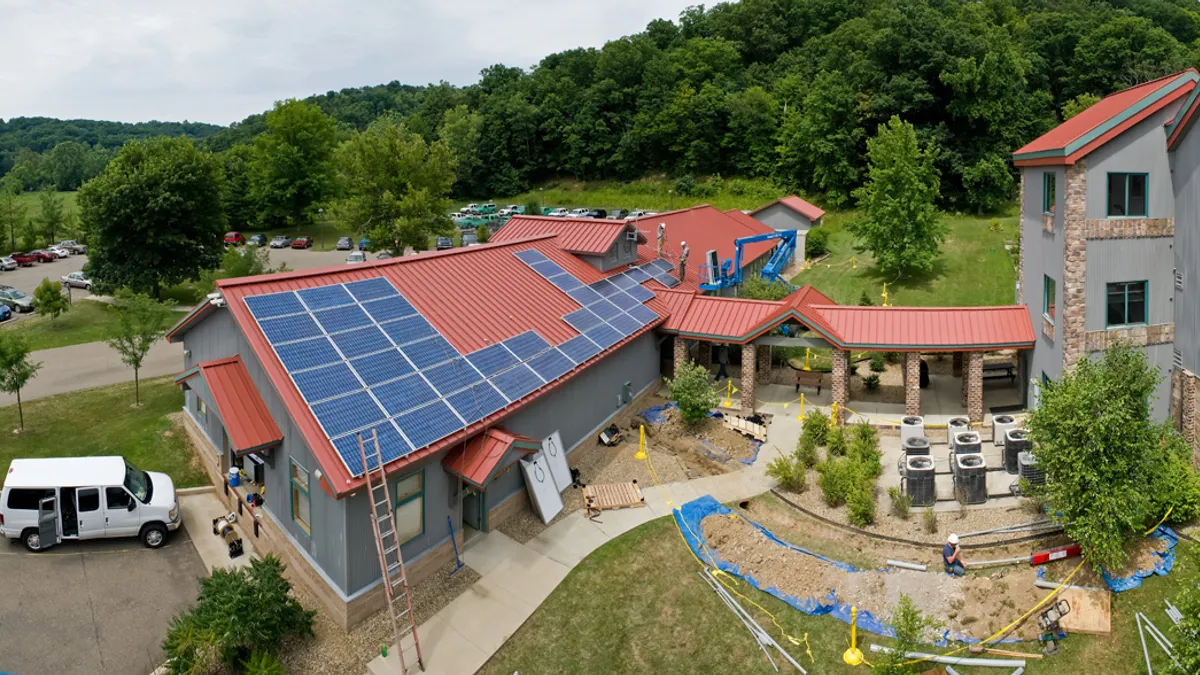Dive Brief:
- Duke Energy said Wednesday that Upstate South Carolina customers applying for net metering reached the 2% total generation capacity cap. While customers can still apply through July 31 for the net metering program, owners of residential solar systems that apply starting Aug. 1 will get less value for the unused solar power they sell back to the utility.
- Solar developers have warned of potential job losses in areas where the net metering cap is reached, such as the Greenville-Spartanburg region of the state. However, "hundreds of customers have already applied for rooftop solar net metering for facilities not yet installed and online, which means solar installers are going to continue to be busy in the Upstate for the foreseeable future," Duke spokesman Ryan Mosier wrote Utility Dive.
- Despite efforts during the 2018 session, state legislators couldn't pass a bill raising the net metering cap established by Act 236. Utilities and solar developers are working toward a compromise in a stakeholder group led by the state's Office of Regulatory Staff (ORS), which is expected to reach a conclusion regarding solar incentives in October.
Dive Insight:
Rooftop solar is still pretty new in the Southeast, Sunrun public policy director Tyson Grinstead says. Many states, including North Carolina, which Grinstead deems as a leader in residential solar job creation, have learned and modeled their net metering policies after Act 236, enacted in 2014.
"Other states are looking to South Carolina as a leader in the region, and so it’s important that we get that right," Grinstead told Utility Dive.
As the 2018 legislative session came to an end, state senate members of the budget conference committee removed an amendment in June that would have lifted the state's net metering cap. South Carolina's House version of the budget would have raised the cap to 4%.
"It was supposed to be a pilot — that’s why it was limited in time period as well as in amount."

Nanette Edwards
Acting executive director, Office of Regulatory Staff
The policy to increase the residential solar market cap failed due to procedural wrangling after being raised in April, before making its way into the budget process.
While the state legislature could come back in session in September, it is scheduled to be out until January. Currently, the potential policy incentives for the residential solar market are being hashed out with stakeholders at ORS. The Public Utilities Review Committee requested in May that ORS create a group of stakeholders to meet every two weeks and work out a vision of "version 2.0" of Act 236, according to ORS Acting Executive Director Nanette Edwards.
Duke's Upstate customers would be grandfathered into the net metering policy if they apply by 5 p.m. on July 31. Afterwards, customers seeking to install solar would utilize the utility's power purchase tariff, which Sunrun's Grinstead views as taking away a customer option to bring down electricity costs. South Carolinians pay some of the highest power rates, largely due to costs associated with the now abandoned VC Summer nuclear expansion project.
More than 50 stakeholder representatives have been invited to craft solutions for the future policy incentives of residential solar in the ORS-led group, to provide more certainty as the net metering cap is reached.
"It was supposed to be a pilot — that’s why it was limited in time period as well as in amount," Edwards told Utility Dive of Act 236. "We just didn't have any kind of incentive that was working to generate that level of investment in distributed renewable energy resources."















